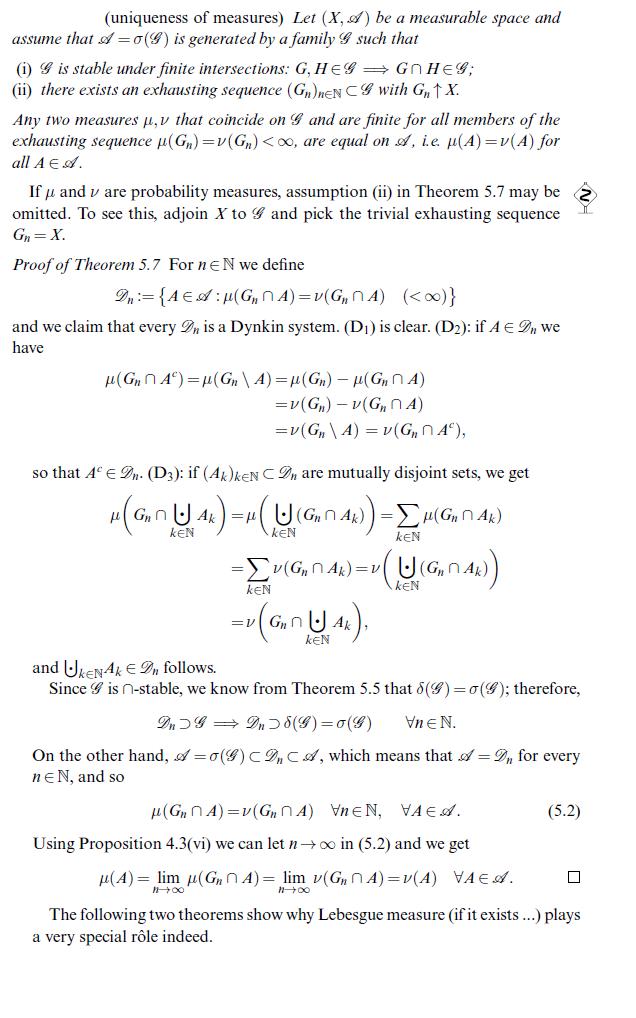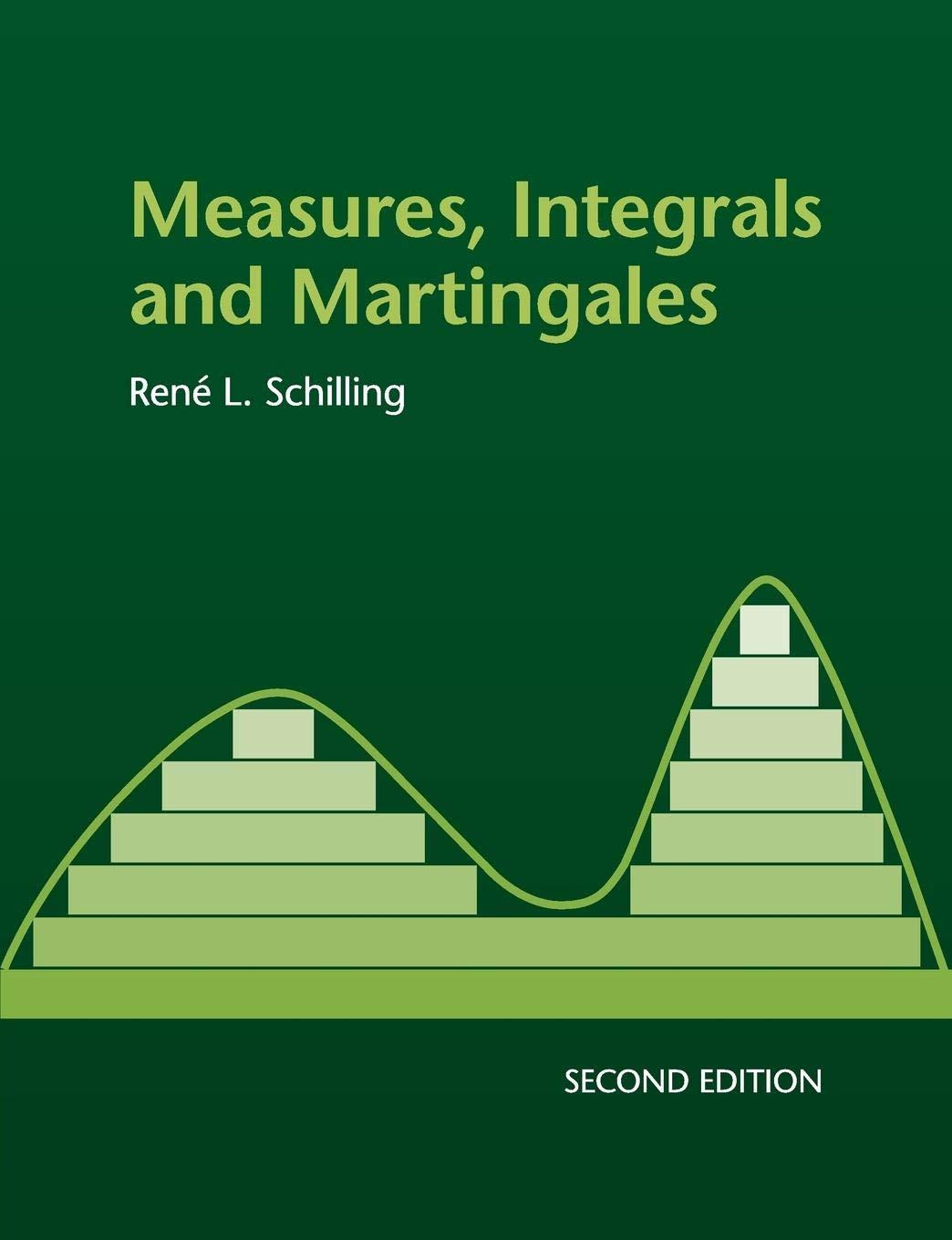(Continuation of Problem 6.3) Consider on (mathbb{R}) the (sigma)-algebra (Sigma) of all Borel sets which are symmetric...
Question:
(Continuation of Problem 6.3) Consider on \(\mathbb{R}\) the \(\sigma\)-algebra \(\Sigma\) of all Borel sets which are symmetric w.r.t. the origin. Set \(A^{+}:=A \cap[0, \infty), A^{-}:=(-\infty, 0] \cap A\) and consider their symmetrizations \(A_{\sigma}^{ \pm}:=A^{ \pm} \cup\left(-A^{ \pm}ight) \in \Sigma\). Show that for every \(u \in \mathcal{M}^{+}(\Sigma)\) with \(0 \leqslant u \leqslant 1\) and for every measure \(\mu\) on \((\mathbb{R}, \Sigma)\) the set function
\[
\mathscr{B}(\mathbb{R}) i A \mapsto \int u \mathbb{1}_{A_{\sigma}^{+}} d \mu+\int(1-u) \mathbb{1}_{A_{\sigma}^{-}} d \mu
\]
is a measure on \(\mathscr{B}(\mathbb{R})\) that extends \(\mu\).
Why does this not contradict the uniqueness Theorem 5.7 for measures?
Data from problem 6.3

Data from theorem 5.7

Step by Step Answer:






